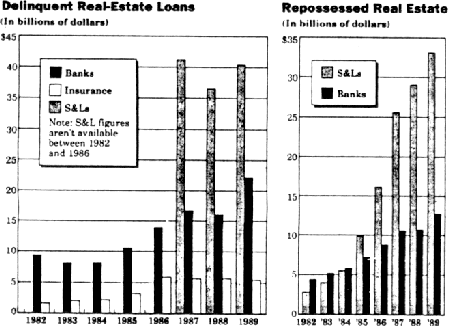
For years, doomsayers have been foretelling the end of the absurd spiral in real estate prices. The argument for a downturn in the residential market is compelling; when most first-time buyers are priced entirely out of the market, you don't just need a greater fool to sustain the market, you need an infusion of new, wealthier, greater fools to buy. And wealthy fools are, as usual, in short supply.
Finally, these forecasts seem to be coming true. Even the California market, one of the last holdouts, now seems to be succumbing to the collapse in prices that appeared first in Texas and New England. While Autodesk's fortunes are tied only tenuously to the real estate market (although clearly the AEC sector of our business will be hard hit by a downturn in construction), the consequences of a sustained drop in real estate will interact with other financial events and magnify the economic problems.
Most of the wealth in the United States is in the form of real estate. As housing prices have risen, this has contributed not only to a general perception of prosperity and confidence, it has contributed real liquidity as well through the ubiquitous home equity loans. If this comes to an end, not only are people going to have less money to spend and less inclination to spend it, an enormous number of loans are going to start to look very iffy. As reserves are built against these loans, less money will be available for other purposes and this will contribute to the business downturn.
I believe we may be in the relatively early stages of a liquidation of some of the excesses in the real estate market, particularly in California. Even if things get no worse here than they are today in Texas, we have a long way to go. I think that this situation bears careful consideration before contemplating any major real estate purchase commitments.

Editor: John Walker